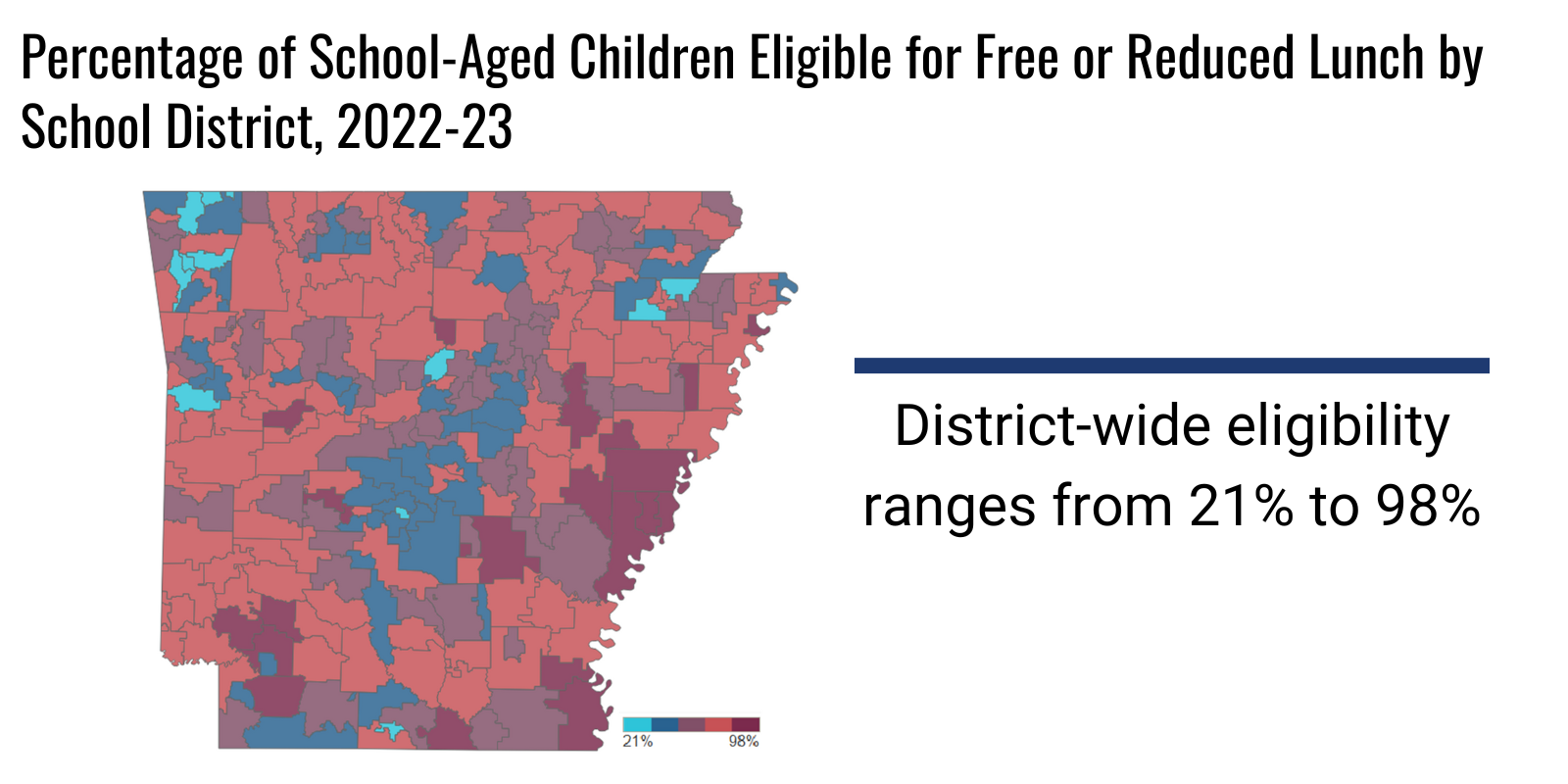
Author
Elizabeth (Izzy) Montgomery, MPA
Policy Analyst
Contact
ACHI Communications
501-526-2244
jlyon@achi.net
Beginning this year, Arkansas will participate in a new program to help address food insecurity experienced in the summer months by many students and their families, Arkansas Gov. Sarah Huckabee Sanders announced Tuesday, Jan. 2.
The Summer Electronic Benefit Transfer Program for Children, or “Summer EBT,” will provide grocery-buying benefits to families with school-aged children who qualify for the free and reduced-price lunch program. Summer EBT is part of the United States Department of Agriculture’s (USDA) broader summer nutrition program efforts, which also include to-go or delivered meals in rural communities and group meal sites for kids.
Through Summer EBT, families will receive approximately $40 per month per eligible child in grocery benefits. Children who are directly certified for free school meals through programs including the Supplemental Nutrition Assistance Program, Temporary Assistance for Needy Families, or Medicaid or who have applied for and were deemed eligible for free or reduced-price lunches will qualify for Summer EBT.
Summer EBT cards are fully funded by the federal government, although costs to administer the program are split between the state and the federal government. States were required to notify the USDA of their intention to implement the Summer EBT program in 2024 by Jan. 1.
Nearly 315,000 children in Arkansas may be eligible for Summer EBT benefits in 2024, according to estimates by the Food Research Action Center. The map below shows percentages of children deemed eligible for free or reduced-price lunches by school district in the 2022-23 school year. As the map demonstrates, district-wide eligibility ranges widely — from 21% to 98%.

The Summer EBT program was informed by previous demonstration waivers for the Summer Electronic Benefit Transfer for Children program and the Pandemic EBT program established during the COVID-19 public health emergency. The USDA cites the success of these programs in reducing child hunger and improving diet quality as the basis for Summer EBT.
Long-term implementation of COVID-era innovations and flexibilities was a recommendation cited in the Arkansas Governor’s Food Desert Working Group report. ACHI was a participant in the working group and helped to inform the recommendations cited in the report. ACHI has also developed an explainer on food deserts — areas where people have few to no convenient options for obtaining affordable and healthy foods — which are a contributor to food insecurity.
Food insecurity — defined as limited or uncertain access to adequate food — is a major issue in Arkansas. Nearly 17% of Arkansas households were food-insecure between 2020-2022, the highest among all states and the District of Columbia. Nationally, approximately 11% of households were food-insecure during the same timeframe.






